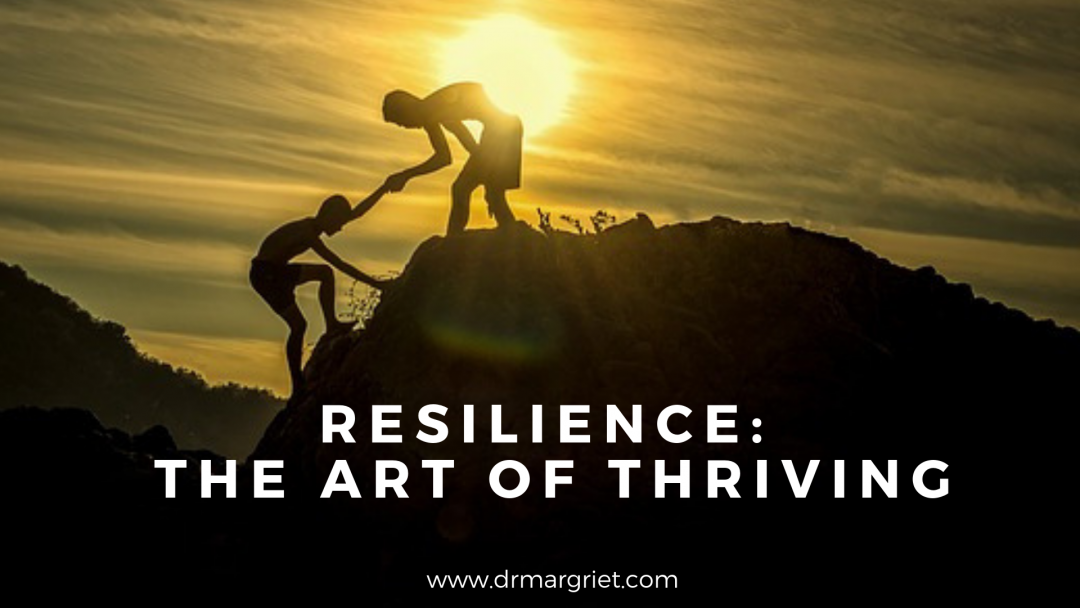Resilience & Mental Health: From Setback To Success

Table of Contents
Understanding Resilience: The Foundation of Mental Well-being
Resilience is a cornerstone of mental well-being, acting as a buffer against the inevitable stressors and challenges of life. It's not about avoiding setbacks – life will inevitably throw curveballs – but about your ability to adapt to and overcome adversity. It's about bouncing back from setbacks with renewed determination and a positive outlook. Crucially, resilience is a skill; it's not an inherent trait, meaning it can be learned and strengthened over time. The more resilient you are, the better equipped you are to handle stress, trauma, and significant life changes, leading to improved mental health outcomes and overall well-being.
Defining Resilience:
- Resilience is the ability to adapt to and overcome adversity. This involves adjusting your thoughts, feelings, and behaviors in the face of challenges.
- It involves bouncing back from setbacks with renewed determination. Resilient individuals don't dwell on failures; they learn from them and move forward.
- It's a skill that can be learned and improved upon. Just like any other skill, resilience can be developed through conscious effort and practice.
- Strong resilience is positively correlated with better mental health outcomes. Individuals with high resilience levels tend to experience less stress, anxiety, and depression.
Building Your Resilience Toolkit: Practical Strategies
Building resilience is an ongoing process requiring consistent effort and self-awareness. Here are some practical strategies to strengthen your resilience and improve your mental health:
Cultivating Self-Compassion:
Self-compassion is crucial for building resilience. Treat yourself with the same kindness and understanding you would offer a friend facing similar challenges.
- Practice self-talk that is supportive and encouraging. Replace negative self-criticism with positive affirmations and self-acceptance.
- Forgive yourself for mistakes and setbacks. Everyone makes mistakes; learn from them and move on.
- Celebrate your strengths and accomplishments. Acknowledge your progress and reward yourself for your efforts.
Developing Coping Mechanisms:
Healthy coping mechanisms are essential for managing stress and difficult emotions. Experiment with different techniques to find what works best for you:
- Mindfulness and meditation techniques: These practices can help you stay grounded in the present moment and manage overwhelming thoughts and feelings. Mindfulness apps can be particularly helpful in getting started.
- Exercise and physical activity: Physical activity releases endorphins, which have mood-boosting effects.
- Spending time in nature: Connecting with nature can reduce stress and promote relaxation.
- Connecting with supportive friends and family: A strong social support network is invaluable in times of difficulty.
- Engaging in hobbies and activities you enjoy: Finding joy and pleasure in your life helps build resilience and reduce stress.
Setting Realistic Goals & Expectations:
Avoid setting unrealistic expectations and embrace a growth mindset.
- Break down large goals into smaller, achievable steps. This makes progress more manageable and prevents feelings of overwhelm.
- Focus on progress, not perfection. Perfectionism can be crippling; celebrate small victories along the way.
- Practice self-forgiveness when things don't go as planned. Setbacks are a normal part of life.
Seeking Support: When to Reach Out for Professional Help
While building resilience is empowering, recognizing when to seek professional support is crucial. If you're struggling to cope with stress, anxiety, depression, or other mental health concerns, don't hesitate to reach out for help.
Recognizing the Signs:
Signs you might need professional help include persistent feelings of sadness, hopelessness, anxiety, irritability, changes in sleep or appetite, difficulty concentrating, and withdrawal from social activities. If these symptoms persist for an extended period or significantly impact your daily life, it's essential to seek help.
Finding the Right Resources:
Many resources are available to help you find the right mental health support. This includes therapists, counselors, psychiatrists, support groups, and online resources. Different therapeutic approaches, such as Cognitive Behavioral Therapy (CBT) and Dialectical Behavior Therapy (DBT), can be highly effective in building resilience and managing mental health challenges. Your primary care physician can also provide guidance and referrals.
Conclusion:
Building resilience is a journey, not a destination. This article has highlighted the importance of understanding resilience, cultivating self-compassion, developing healthy coping mechanisms, and setting realistic goals as key strategies for improving mental well-being. Remember that seeking professional help is a sign of strength, not weakness, and valuable resources are available to support you. Start building your resilience toolkit today! Take small steps towards a stronger, more resilient you. Learn more about effective strategies for improving your resilience and mental health and take control of your well-being.

Featured Posts
-
 Bangladeshinfo Com Your Comprehensive Guide To Bangladesh
May 21, 2025
Bangladeshinfo Com Your Comprehensive Guide To Bangladesh
May 21, 2025 -
 Juergen Klopp Mu Carlo Ancelotti Mi Teknik Direktoer Karsilastirmasi
May 21, 2025
Juergen Klopp Mu Carlo Ancelotti Mi Teknik Direktoer Karsilastirmasi
May 21, 2025 -
 D Wave Quantum Qbts Stock Market Performance A Comprehensive Analysis
May 21, 2025
D Wave Quantum Qbts Stock Market Performance A Comprehensive Analysis
May 21, 2025 -
 Councillors Wifes Jail Sentence For Hotel Fire Tweet Appeal Awaits
May 21, 2025
Councillors Wifes Jail Sentence For Hotel Fire Tweet Appeal Awaits
May 21, 2025 -
 Jail Time For Antiques Roadshow Couple Unintentional National Treasure Crime
May 21, 2025
Jail Time For Antiques Roadshow Couple Unintentional National Treasure Crime
May 21, 2025
Latest Posts
-
 Bwtshytynw Yeln En Thlath Wjwh Jdydt Fy Tshkylt Mntkhb Amryka
May 22, 2025
Bwtshytynw Yeln En Thlath Wjwh Jdydt Fy Tshkylt Mntkhb Amryka
May 22, 2025 -
 Mntkhb Amryka Thlath Mfajat Fy Qaymt Bwtshytynw Aljdydt
May 22, 2025
Mntkhb Amryka Thlath Mfajat Fy Qaymt Bwtshytynw Aljdydt
May 22, 2025 -
 5 Podcasts De Terror Misterio Y Suspenso Para No Dormir
May 22, 2025
5 Podcasts De Terror Misterio Y Suspenso Para No Dormir
May 22, 2025 -
 Andmam Thlathy Mmyz Lmntkhb Amryka Lkrt Alqdm Bqyadt Bwtshytynw
May 22, 2025
Andmam Thlathy Mmyz Lmntkhb Amryka Lkrt Alqdm Bqyadt Bwtshytynw
May 22, 2025 -
 Sumergete En El Misterio 5 Podcasts De Terror Y Suspenso Imprescindibles
May 22, 2025
Sumergete En El Misterio 5 Podcasts De Terror Y Suspenso Imprescindibles
May 22, 2025
